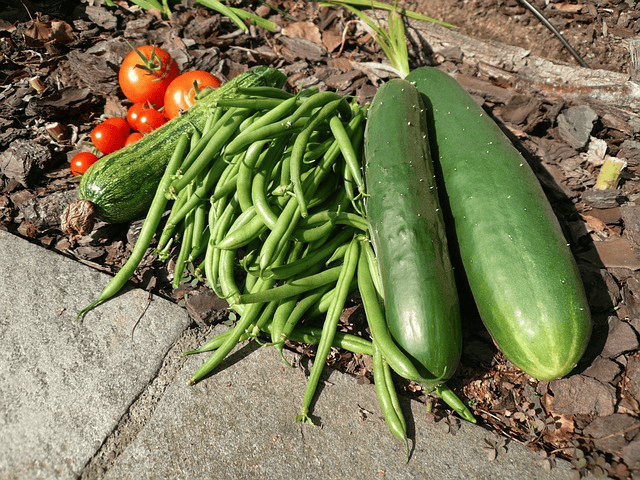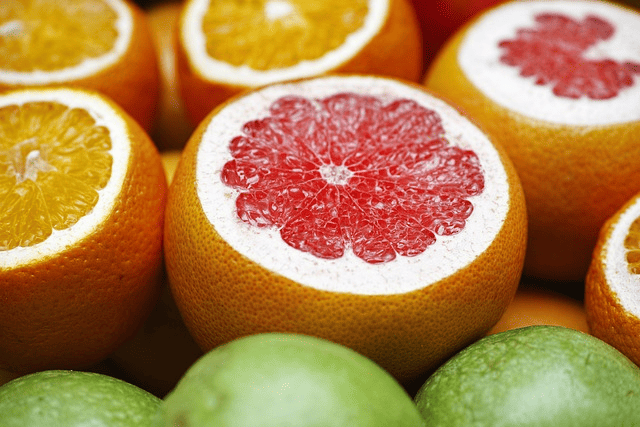Are you on a weight loss journey and looking for delicious, low-calorie options to help you achieve your goals? Look no further! Behold the magic of zero calorie food, nature’s delightful treasure trove of flavors that offer a myriad of essential nutrients without packing on the pounds.
In this blog post, we’ll debunk the myth of zero calorie food, explore their role in weight loss, and share 50 scrumptious options to help you succeed in your journey to a healthier you.
Imagine indulging in mouth-watering fruits and vegetables without worrying about derailing your weight loss progress. Envision sipping on flavorful beverages that keep you hydrated without adding unwanted calories.
The secret to successful weight loss is finding the right balance of tasty, nutritious foods that satisfy your cravings while keeping your calorie count in check.
Join us on this exciting adventure as we discover the wonders of zero calorie food and learn how to incorporate them into a balanced diet. You’ll be amazed at how these flavorful, nutrient-rich options can transform your relationship with food and make weight loss a truly enjoyable experience.
Key Takeaways
-
Discover the reality of zero calorie foods and their benefits for weight loss.
-
Enjoy nutritious low-calorie treats like fruits, vegetables, leafy greens & root veggies.
-
Incorporate these into your diet with portion control, creative combinations & recipes for maximum benefit!
Understanding Zero Calorie Foods

The world of zero calorie foods can be a bit confusing at first. Are there really any foods that have zero calories? Can some food actually be calorie free? How can such foods help with weight loss?
Let’s unmask the zero calorie foods myth surrounding the concept of zero calorie foods.
The Myth of Zero Calorie Foods
The truth is that no food is truly zero calorie. However, some foods have such a negligible calorie content that they are often referred to as “almost zero calorie foods” or “negative calorie foods.”
These terms are used to emphasize foods with very few calories, while encouraging healthy, very low calorie foods no-calorie choices. Foods like garlic, for example, are considered negative calorie foods because they provide more energy to digest than what they provide in calories.
This means that even just digesting and absorbing whatever calories and nutrients are contained within a food takes energy, which is the concept behind negative calorie food. Such high calorie foods are packed with nutrients and fiber, making them a great addition to a healthy diet.
How Zero Calorie Foods Aid Weight Loss
Creating a calorie deficit, zero calorie foods significantly with calorie counting and contribute to weight loss. Consuming fewer calories than you burn can lead to successful weight loss.
Zero calorie foods provide a sense of fullness and satisfaction without significantly increasing calorie intake. Fruits are filled with water and fiber. This can help control hunger, reducing overall calorie intake and aiding in weight loss. Eating more fruits can be beneficial for weight management..
Looking for a comprehensive top zero calorie foods list? Here are some examples of zero calorie foods you can include in your diet as zero calorie snacks:
-
Chilies
-
Tomatoes
-
Cocoa powder
-
Fresh ginger
-
Green beans
-
Cilantro
-
Fermented pickles
-
Mushrooms
These foods can be enjoyed alone or incorporated into meals to add extra flavor and nutrition without piling on the calories.
A balanced diet, combined with regular exercise and a focus on portion control, can help you achieve and maintain a very healthy weight loss amount. Including zero calorie foods in your meal plan can support your weight loss journey and provide essential vitamins, minerals, and other nutrients to keep you feeling your best.
Fruits: Nature’s Low-Calorie Delights

Fruits are nature’s sweet, low-calorie delights that offer a wide variety of flavors and textures to satisfy your cravings. Loaded with essential vitamins, minerals, and antioxidants, fruits can be a delicious and nutritious part of your weight loss journey.
Discover some of the top ten best zero calorie snacks and fruits that add flavor to your meals without hindering your progress.
Citrus Fruits: Oranges, Lemons, and Grapefruits
Citrus fruits like oranges, lemons, and grapefruits are not only low in calories but also packed with vitamin C and antioxidants. Oranges, for example, are an excellent source of immune-boosting vitamin C and provide essential nutrients for overall health. Lemons, with their refreshing zing, contain a mere 17 calories per can.
Grapefruits, another low-calorie citrus fruit, are packed with:
-
Fiber
-
Vitamins
-
Minerals
-
Antioxidants
Making them a great addition to your weight loss plan. These juicy fruits can help you get more calories feel fuller for longer and reduce your calorie intake, supporting your weight loss journey.
Berries: Strawberries, Blueberries, and Raspberries
Berries are nature’s tiny treasures that pack a big nutritional punch so few calories. Strawberries, blueberries, and raspberries are all low in calories and carbohydrates, making them an excellent choice for a healthy snack or dessert. These vibrant fruits are also rich in vitamins, minerals, and antioxidants.
Incorporating berries into your diet can be as simple as enjoying them on their own, adding one cup them to a yogurt parfait, or blending them into a smoothie. Their natural sweetness and vibrant colors make them a delightful treat that will satisfy your sweet tooth without derailing your weight loss goals.
Melons: Watermelon and Cantaloupe
Melons like watermelon and cantaloupe are wonderfully low in calories and high in water content, making them a refreshing and hydrating snack option. In addition to being low in calories, melons also provide essential vitamins and minerals, such as vitamin C and potassium, to support overall health. Enjoy these juicy fruits on a hot summer day or add them to a fruit salad for a burst of natural sweetness.
Vegetables: Nutrient Powerhouses with Few Calories

Vegetables are the unsung heroes of the zero calorie food world. Packed with essential nutrients and fiber, these low-calorie powerhouses can help you stay full and satisfied without compromising your weight loss goals.
A world of tasty and nutritious options are waiting for you, from leafy greens to cruciferous vegetables.
Leafy Greens: Spinach, Kale, and Arugula
Leafy green vegetables like spinach, kale, and arugula are low in calories but high in essential vitamins, minerals, and fiber. Spinach, for example, is packed with fiber, iron, magnesium, potassium, and calcium, providing a wealth of nutrients in a low-calorie package.
Kale, another nutrient-dense leafy green, is an excellent source of vitamins A, C, and K, as well as iron, calcium, and manganese. Arugula boasts an abundance of vitamin C, phytonutrients, and vitamin K, making it a great addition to your low-calorie diet. Incorporate these versatile greens into salads, smoothies, or even as a base for your favorite vegetable dishes.
Cruciferous Vegetables: Broccoli, Cauliflower, and Brussels Sprouts
Cruciferous vegetables, such as broccoli, cauliflower, and Brussels sprouts, are low in calories and packed with essential nutrients and fiber. Broccoli is packed with essential nutrients. It is a good source of:
-
Fiber
-
Protein
-
Iron
-
Potassium
-
Calcium
-
Selenium
-
Magnesium
-
Vitamins A, C, E, K
-
Several B vitamins, such as folic acid
Cauliflower, another cruciferous vegetable, is a nutrient rich foods, in water, fiber, and glucosinolates, which may help protect against cancer. Brussels sprouts, on the other hand, are incredibly abundant in essential vitamins, minerals, and dietary fiber. Enjoy these delicious veggies steamed, roasted, or sautéed for a satisfying and nutrient-rich meal.
Root Vegetables: Carrots, Beets, and Radishes
Root vegetables like carrots, beets, and radishes are low in calories and provide essential vitamins and minerals. Carrots, for example, are an excellent source of vitamins A, C, and K, as well as iron, calcium, and magnesium. Beets are also low calorie vegetables and a great source of essential nutrients like vitamins A, C, and K, as well as iron, calcium, and magnesium.
Radishes, a delightful addition to any salad, are a fabulous source of vitamin C and fiber, providing a wealth of health benefits. Experiment with these versatile root vegetables by incorporating them into salads, soups, or even as a satisfying snack.
Low-Calorie Beverages: Hydration without the Calories

While staying hydrated is key for overall health and weight loss, sometimes you may need more than just water. Fortunately, there are a variety of low-calorie beverages that can help you stay hydrated without adding extra calories.
Discover some delicious alternatives to keep you refreshed and satisfied, instead of sugary drinks.
Water: The Ultimate Zero Calorie Beverage
Water is the ultimate zero calorie beverage, essential for hydration and overall health. It helps to regulate body temperature, aids in digestion, and helps to flush out toxins. It’s recommended that the average person consume about 3.7 liters (15.5 cups or 125 ounces) of water daily for men, and about 2.7 liters (11.5 cups or 91 ounces) for women to stay optimally hydrated.
To make water more enticing, try infusing it with fresh fruits, herbs, or even a splash of lemon or lime juice. This adds natural flavor without adding significant calories, making it a refreshing and hydrating option for those watching their calorie intake.
Herbal Teas: Flavorful and Calorie-Free
Herbal teas offer a flavorful and calorie-free alternative to sugary drinks, making them a great choice for those looking to watch their calorie intake. There are a wide variety of herbal teas to choose from, each with its own unique taste profile and aroma, such as:
-
Chamomile
-
Peppermint
-
Ginger
-
Lavender
-
Berry
-
Chai
-
Citrus
Drinking herbal teas can provide several wonderful health benefits, including:
-
reducing menstrual pain and muscle spasms
-
improving sleep and relaxation
-
reducing stress
-
boosting immune function
Plus, they can be enjoyed hot or cold, making them a versatile beverage option for any time of day.
Black Coffee: A Natural Metabolism Booster
Black coffee is a natural metabolism booster with minimal calories, making it a great choice for a healthy lifestyle. A cup of black coffee contains a mere 2 calories. Drinking black coffee in moderation can provide positive short- and long-term effects on your health, such as increased energy, improved focus, and potential appetite suppression.
Enjoying black coffee in the morning, preferably after breakfast, can help optimize metabolism and provide an energizing boost.
Tips for Incorporating Zero Calorie Foods into Your Diet

Adding zero calorie foods to your diet can bring a fun and rewarding change. With a little creativity and a balanced approach, you can enjoy a wide variety of low-calorie options that are both satisfying and delicious.
Here are some tips to help you make the most of these nutritious and low-calorie foods:
Portion Control
Even with low-calorie foods, portion control is key to prevent overeating and to be mindful of the calories per serving. For fruits and vegetables, one serving is usually about half a cup or cheerful tennis ball-sized portion. As for beverages, portion control is typically measured in cups or ounces, which is quite convenient.
By being mindful of portion sizes and focusing on eating a balanced diet, you can enjoy the benefits of low-calorie foods without compromising your weight loss goals. Remember, even zero calorie foods should be enjoyed in moderation to maintain a healthy lifestyle.
Combining Foods for Maximum Benefits
To increase satiety and provide essential nutrients, consider combining foods for maximum benefits. Pairing low-calorie foods with healthy fats, such as nuts and avocados, can be a great way to do this. Additionally, combining different types of vegetables can help create a balanced meal.
Experiment with different food combinations to find what works best for you and your lifestyle. The key is to find a balance that provides the nutrients your body needs while still supporting your weight loss journey and helping you lose weight.
Experimenting with Recipes
To make healthy eating more enjoyable, try experimenting with recipes that make low-calorie foods more satisfying. By trying new recipes and incorporating low-calorie ingredients, you can discover delicious ways to make low-calorie foods more flavorful and satisfying.
Don’t be afraid to try new things! Look for recipes that include your favorite low-calorie fruits and vegetables, and get creative in the kitchen. You might be surprised at the delicious dishes you can create while still maintaining a healthy, low-calorie diet.
Summary
In conclusion, zero calorie foods can be a valuable tool in your weight loss journey. By incorporating nutrient-rich fruits, vegetables, and low-calorie beverages into your diet, you can enjoy a wide variety of flavors and textures without compromising your progress. Remember to practice portion control, combine foods for maximum benefits, and experiment with recipes to keep your diet enjoyable and satisfying.
Embrace the world of zero calorie foods and discover a new, delicious way to support your weight loss goals. With a balanced approach and a little creativity, you can transform your relationship with food and make weight loss a truly enjoyable experience.
Frequently Asked Questions
What food has 0 calories?
Amazingly, there are foods that contain zero calories! Enjoy delicious choices like fruits, vegetables, non-fat dairy products, lean proteins and whole grains for a healthy, nutritious diet with no calorie worries.
What are the 10 lowest calorie foods?
Enjoy low-calorie foods like water, tea, salad greens, soup broth, mushrooms, strawberries, vegetable soup, whole grain toast, cod, eggs, and low-fat cottage cheese to help keep calories in check while achieving weight loss goals. These nutrient-dense options offer a great way to consume fewer calories and fuel the body with nutritious ingredients.
Is there a 0 calorie snack?
It’s not possible to find a zero-calorie snack, but there are lots of low-calorie snacks like berries, apples and apricots that make for great options between workouts.
What are 0 calorie foods for fasting?
When it comes to fasting, one of the key things to remember is to avoid any foods that contain too few calories anyway. There are plenty of zero-calorie or “negative calorie” foods such as cucumbers, celery, lettuce, water, vitamins and supplements, herbs, hot sauce, coffee and tea, chile, mustard and other zero-calorie foods that can be consumed while fasting.
How can zero calorie foods help with weight loss?
Zero calorie foods can help you lose weight by creating a calorie deficit and keeping you full for longer.
